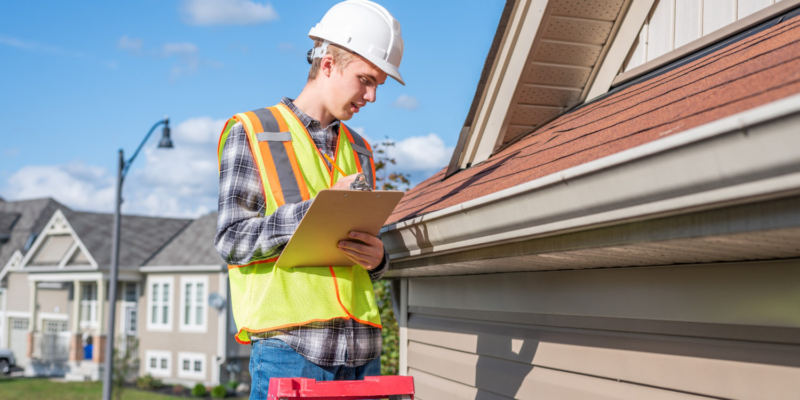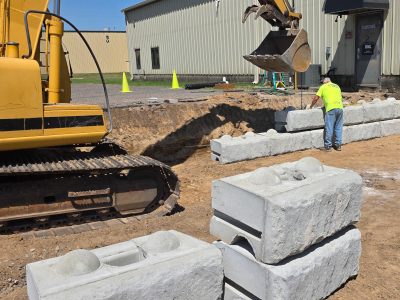You want your home to be in great shape when you buy it. During the inspection, your home needs to meet certain codes and requirements. You might be wondering if your home has all the necessary gutters.
Does a House Need Gutters to Pass Inspection?
In short, a house can pass inspection even without gutters. Inspectors don’t check for them since they’re not required by building codes. However, if there’s damage due to missing gutters, the inspector might suggest installing them.
While it’s not a law to have gutters, they can shield your home from issues like soil erosion and foundation rot.
Do Home Inspectors Check Your Gutters?
The inspector will check your gutter system during the home inspection. They’ll look at the gutters, downspouts, and how water flows away from the foundation. Here are the things they’ll be watching:
- Debris can block the gutters and prevent water drainage
- Evidence of gutter overflow
- To ensure that water flows freely, secure gutter piping sloped to prevent leakage
- Leaks due to damage, cracks, or splits
- A sufficient number of downspouts
- If rainwater dribbles onto the roof,
- The downspouts can cause damage to the foundation
How Can I Tell if My House Needs Gutters?
You might be surprised to find many homes without gutters when you’re looking for a house. While gutters aren’t necessary for a home to meet standards, they can be a great investment for protecting your home. Several factors can affect whether your house needs gutters. Here are some things to think about:
- Overhang: Standard roof overhangs that shield against rain are usually 16-18 inches. If your overhang is shorter, consider adding gutters.
- Climate: In areas with little rain or snow, you might not need gutters. Limited precipitation means less risk of water damage, as there’s only a small amount of water falling and running off your roof.
- Eave Flashing: Your home might already have eave flashing. If not, leaving wood exposed could lead to roof rot. To prevent this, consider adding gutters or eave flashing.
- Slopes: If your house is on top of a slope or hill, it’s wise to install a gutter system. This helps prevent rainwater from accumulating around your foundation instead of draining away.
This post was written by a roofing specialist at All Star Roofing. We offer the best roof repairs in Tampa. We are a family-owned and operated roofing business, striving to be the best in our industry. Our family has been in the Tampa Bay area for over 60 years, and our objective has always been to provide roofing services at a fast, reliable, and competitive rate. All Star has a tradition of quality workmanship, servicing residential and commercial properties.











Comments